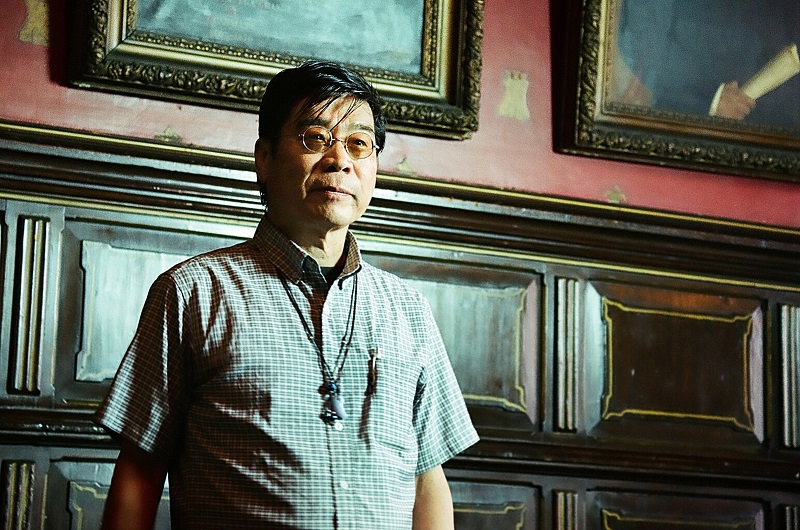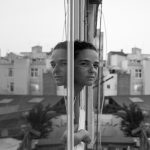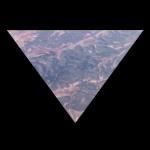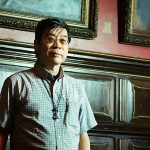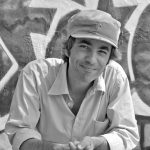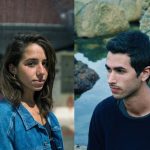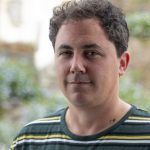Cayetana H. Cuyás, David Delgado San Ginés, Adriana Thomasa Carballo and Pablo Vilas Delgado, Enrique Diego and Rafael Navarro Miñón are the authors of the short films making up Canarias Cinema’s third session
Leticia Márquez Gutiérrez debuts in the Festival as the winner of LPA Juvencorto
Las Palmas de Gran Canaria, Saturday 10 April, 2021.- Experimentation, animation, football’s effect on us… outside the pitch, certain unforgivable sins and even Kazuo Hara’s reappearance at the Las Palmas de Gran Canaria International Film Festival. Canarias Cinema’s third session of short films will be the last and most varied collection of brief pieces screening in this edition. Cayetana H. Cuyás, David Delgado San Ginés, Adriana Thomasa Carballo and Pablo Vilas Delgado, Enrique Diego and Rafael Navarro Miñón make up the list of filmmakers closing this section in movie theaters, which will be completed with Leticia Márquez Gutiérrez’s short film, winner of LPA Juvencorto.
Equals
- Cayetana H. Cuyás
- Equals
Equals (2020) is a short film created in the middle of the pandemic: after retrieving and transforming it, Cayetana H. Cuyás was able to rethink and turn that material into a uniform visual concept. The author remembers that how “a few years ago I was studying the role of women over church: I wanted to make a short film about nuns. And I talked to somebody. That conversation stuck in my head. During the confinement I started to think about it”. A reflection present in the middle of her creative development as a painter: “I’m at a point of shapes and colors, and I wanted to transfer that into the pictures. Painting with the picture on the screen”, she says.
Thus, in Equals, Cuyás proposes a game of symmetries, colors, geometrical shapes. Landscapes that turn into another sort of pictures with a voice-over fundamental in her piece: that of Lidia Farray, her interlocutor in that conversation from which her short film started to take shape. Farray figures as co-screenwriter, “because, actually, everything comes from that dialogue with her”.
The filmmaker defines Equals as “a research exercise, in which I don’t want to be clear. Like a double layer, trying not to be too textual”. In the end, she is satisfied with a result that did not upset its narrator, according to Cuyás: “I love the fact that I have put images to what we discuss, she said to me. And I share her opinion”.
The director explained that it took her months to complete that mix of Super 8 pictures filmed during the trips of other people with artistic sensitivity, a meditated editing and “a point of irreverence, always getting close to religion with respect”. The short film is on the author’s conceptual line, which defends a “very visual, collage-like” creation.
Cuyás has appeared in different occasions at the Las Palmas de Gran Canaria International Film Festival and in its Canarias Cinema section, in which she notices that every year “there are short films with such a good level that they could be in the Official Section. Maybe at some point they will need to be mixed so that we may find out at which level we are in regard to those works from outside.” She admits that “of course you are influenced by what you see at the Festival. A large number of filmmakers here have been noticed thanks to this Festival”.
A Japanese Lesson (and a Promise)
- A Japanese Lesson (and a Promise)
- David Delgado San Ginés
Kazuo Hara is a household name in documentary films. A master of the genre who in 2011 came to Las Palmas de Gran Canaria because the Film Festival devoted a full cycle to his works, always radical and magnetic. On the occasion of his visit to the Gran-Canarian capital the author himself requested to give a sort of film performance and send a message to the Festival. An enterprise that began to take shape but was left unfinished. David Delgado San Ginés was there to see it done, and kept a copy of that shooting, agreed on their terms with Kazuo Hara himself. Almost a year ago he retrieved the material and decided to edit it. “Dusting it off, because it was never going to come out”, points out the Canarian director who made this A Japanese Lesson (and a Promise) (2019).
The filmmaker’s work, with a significant documentary value, has been included in the Canarias Cinema Short Film section. “One is always happy when the things one makes are valued in this way within an event of this kind, even though it is not strictly mine, and that it fits a different line than the one I usually work with”, he points out. However, “it made some sense making something, of course. Retrieving, too, the pictures the crew took during the shooting. And we had in audio the translations from Japanese, which turned out to be essential”. The final product is a white-and-black short film, with Kazuo Hara as the absolute protagonist giving the audience some priceless notes on Japanese culture and language, within the framework of a beautifully-produced composition and cinematography.
The Canarian director admitted that “it was a great experience, I truly enjoyed it as a fan of Japanese culture, cinema and, above all, Kazuo Hara’s work. We met back then, and to tell you the truth, at the beginning you feel awkward: you are impressed just by being before someone like him. But at the same time, you feel thankful for being able to know some of their working methods in documentary films”.
David Delgado San Ginés stresses that “the biggest merit of this work is Kazuo Hara himself, who is the one who decided to make it like this. Everything else was having some intuition to make something that could be edited. And it was indeed a playful proposal. We were aware of the fact that it needed to be frontal, direct and provocative”. Everything “in a short film in which the relevant thing is the promise Kazuo Hara himself made to the Festival [coming back with a short film of his own]. It was important for me to reflect that sense of Japanese pride and honor when committing. In that sense, that is a provocation or challenge I make to the Festival. With no ill intention, I also play at doing a little bit of justice”.
Prior to this proposal David Delgado San Ginés has appeared “a lot” in the Gran-Canarian Festival. For instance, in its first edition he worked as a cinematographer. His last appearance was in 2017. In his career, the filmmaker has made documentaries and fiction, “although without mixing both concepts. In my case, I limit myself to my interests”. Regarding the Festival, he points out, from the perspective gained through time, that “all these influences that it has brought us have favored in the Canary Island the diffusion art and film culture offer”.
Offscreen
- Adriana Thomasa Carballo and Pablo Vilas Delgado
- Offscreen
La Calera is a city, in the interior of Chile (in the central region) two hours away from Santiago, the capital. A place in which, as it happens in many parts of Latin America, football is very important. A good deal of life revolves around their pitches… although Adriana Thomasa Carballo and Pablo Vilas Delgado decided to focus the camera lens on what happened on their margins to make Offscreen (2019). Both, by then students of a documentary film course in Valparaíso, were determined to approach a social moment marked by the Haitian migratory phenomenon in Chile. “We got to a place where a Haitian community was trying to fit in Chilean society through an amateur football tournament. And we found many other thins that grabbed our attention”, explains Pablo Vilas.
The filmmaker points out that “on the one hand we wanted to play with the Offscreen thing having several meanings. But, on the other hand, it was interesting to depict things that were happening in the most deprived part of Chilean society, at least how we perceived it. Or things that were portrayed by the media in one way only. For instance, Haitian immigration, around which common stereotypes about people coming from another country illegally were used. In that reality of La Calera that community was simply enjoying some leisure time”.
Throughout the work, the authors of the short film “were half-conscious of that exotic component Haitians have in Chile. Although our foreign look is also reflected on it, and at the end of the short film an indefinite place appears, in which you don’t know exactly where you are, precisely so that it can be read in many possible ways”.
Vilas and Carballo spent “several months preparing the shooting: about ten Sundays, when there was football. And then we did have to be a couple of months editing”, adds the director.
Pablo Vilas debuts with this work at the Las Palmas de Gran Canaria International Film Festival. “I really wanted to come”, he admits, “because we had heard a lot about the films screening here, avant-garde. We only wanted to come as spectators: Imagine coming with a selected piece!” The filmmaker adds that “I’ve been told a lot from the Canary Islands about this Festival, which is also a school in which you can learn other kind of narratives and looks”. Besides, “it’s a luxury being able to attend cinemas, in the context we are in: it’s true that platforms save our film life a little bit, but you cannot thank enough going to movie theaters and talking with the filmmakers themselves.
Minotaur
- Enrique Diego
- Minotaur
Certain classical culture myths appear in the imaginary as fixed things. Common places about everything seems to have been said already. Minotaur (2019) is a short film that deals with the Greek legend surrounding the monster, the bull-headed man. Its director, Enrique Diego, has managed to give a turn to the mythological being’s nature in a surprising way: giving him a motive that forces spectators to put themselves on his shoes, while at the same time redefining Theseus’s role as hero.
The proposal is presented with meticulous animation, which is hard to identify from the labyrinth’s first shots. But yes: Minotaur is an animated short film, picture after picture. In particular, at a pace of twelve pictures per second, “so that it could have the pace we were looking for”, explains the director.
In the short film, Camilo García give voice to the Minotaur. Pere Molina, to Theseus. The ideal culmination of an idea that came up when Diego was at Merida International Classical Theater Festival, thanks to a piece in which “El Brujo” (Rafael Álvarez) revisited the Odyssey in his own way. “He told it just as he wanted to”, says the filmmaker, “and apparently that’s how they in ancient times. Myths were told in the ways of those who told them, and they were even used to talk about their present”.
“Later”, he carries on, “we started to mull over the Minotaur’s idea: there it was, a good story about someone who is very different, who is demonized, and who may not even be dangerous at all. All that while talking in the studio at a moment in which we usually discussed the increasing radicalism in many areas of society”.
Then, “once that first idea comes up, many others follow. What is a civic hero? Here Theseus is the person who overcomes his fears and the previous information he is told about the Minotaur. He is the sensible character, perceives different perspectives. And he acts accordingly. That final twist was important”.
To complete Minotaur three months of shooting were needed, and three others of experimentation, which included the careful manufacturing of the monster and Theseus’s puppets. And it paid off in the form of over ten awards and the recognition of a short film now screening in Canarias Cinema, at the Las Palmas de Gran Canaria International Film Festival.
“I had attended some screenings in previous years, so I’ve been able to enjoy the Festival’s atmosphere”, says Diego, who now comes as a selected author. “Doubling the number of short films in the section has been a nice gesture on behalf of the Festival”, he points out in regards to the 20th edition of the Festival, which is trying to make up for last year’s gap caused by the pandemic.
The German
- Rafael Navarro Miñón
- The German
Rafael Navarro Miñón is a regular of the Las Palmas de Gran Canaria International Film Festival and its Canarias Cinema section. On this occasion he participates with the short film The German (2020), a piece that revolves around a couple’s issue and an unforgettable and unforgivable matter. “I know what is the unforgivable thing. And everyone can imagine that in a relationship. It’s what stands out for the audience”, says ironically the filmmaker, who comes up with a work that, in its line, approaches daily life always with a meticulous composition and an elegant balance.
“In my case”, he points out, “the characters’ life is always told as a day. And there’s usually a relationship. In this case is a couple, in Mi profesora de salsa (2019) are a teacher and her student, for instance. I seek meetings between two people, often in the same place: the main set is my house, where shots always fit. And everything else is what is closer to me. It is always very simple, with a very small crew. A sound engineer and, in this short film, the cinematographer, Zhana Yordanova, who here has her first experience in cinema. And she needs to be mentioned because she does an outstanding job. Thanks to collaborators”, he stresses, “I can be in places such as this Festival”.
Rafael Navarro is an architect and has worked sculpting, painting, engraving or photographing. In 2011 he decided to shift to cinema, “because I found it the most fitting medium with my knowledge. Architects study space, and cinema does it to”. It’s something he tried to capture well in his work: in fact, one of his first short films, La cantante (2013), was awarded at Lisbon’s Arquiteturas Film Festival. “A Festival about architecture!” stresses the autor.
Once again in Canarias Cinema, Navarro points out that “I usually premiere my short films at this Festival, it’s here where my interests have moved. It’s an important meeting point, for almost everybody who participates in Canarias Cinema. I might’ve snuck into it, because there are a lot of interesting people, very important and with exceptional pieces. It’s a pleasure appearing alongside them, authors from whom you can learn, too. And they even force you a little bit more, so that we get closer to each other in what we do”.
Tiempo. Velocidad
Tiempo. Velocidad (2019) is a short film directed by Leticia Márquez Gutiérrez, winner of LPA Juvencorto, an event organized by Las Palmas de Gran Canaria City Council’s Youth Department. A piece that also received the audience’s special mention, which granted it the opportunity of appearing in the Canarias Cinema section of the 20th Las Palmas de Gran Canaria International Film Festival. Thus, the public will be able to enjoy this piece by Márquez, who debuts in the Festival.
Canarias Cinema Short Films: Session 3 is screening at 10 am, and also at 5 pm, in this case with introductions by the filmmakers, on Sunday April 11th, at Cinesa El Muelle’s Screen 9. The event is subject to all security measures fighting the spreading of COVID-19, so masks are compulsory and social distances need to be observed at all times during screenings.
Share this Post

